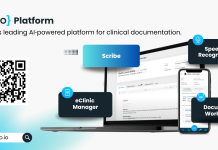The UK’s public sector has made significant efforts to enhance its digital services, like allowing citizens to apply for Universal Credit, register to vote, and access NHS services like repeat prescriptions
These services are extremely beneficial, so they show how important these things are in today’s digital world.
The Government faces challenges as it tries to offer more basic services that deliver seamless, integrated experiences that meet the growing expectations of users.
Breaking down silos and creating seamless services
Fragmentation is one of the key issues within the UK’s public sector.
Services often exist in separate silos, with different departments, local authorities, and NHS trusts managing their own digital systems.
This fragmentation complicates service delivery and creates unnecessary barriers for the public, who may need to navigate multiple platforms and remember numerous passwords. The aim should be to join up these services so they work together smoothly, making it easier for people to interact with the Government and access the services they need in one place.
Using AI for public services
Artificial Intelligence (AI) offers an opportunity to revolutionise public sector services. With the potential to improve efficiency, accuracy, and personalisation, AI can enable more responsive, intelligent services that adapt to the needs of individuals.
However, to get the full benefits of AI, the Government must invest in the right skills, infrastructure, and cross-departmental collaboration. As we embrace new technologies, addressing challenges such as data privacy, cybersecurity, and digital exclusion is crucial, ensuring that all citizens can benefit from these advancements.
Building a stronger digital foundation
A modern digital government requires a secure, scalable, and resilient infrastructure.
The Government is focusing on strengthening its digital and data systems, including expanding services like GOV.UK One Login aims to provide a single, secure point of access for a wide range of public services.
Improving cybersecurity and resilience is also essential, as the increasing reliance on digital systems makes the sector more vulnerable to cyber threats. The goal is to build a trustworthy digital environment that can handle the demands of today’s public services while being adaptable to future challenges.
Investing in leadership and talent
Digital transformation in the public sector requires strong leadership and a skilled workforce.
The Government acknowledges that digital leadership is essential to decision-making in all departments. Senior leaders should possess the skills needed to drive digital transformation, and there must be a focused effort to attract and retain talent in digital and data fields.
This means offering competitive opportunities and professional development to ensure the UK’s public sector can keep pace with technological advancements and innovation.
Reforming funding and procurement for innovation
To support digital transformation, the Government plans to overhaul its approach to funding and procurement.
Traditional funding models often limit innovation, making investing in long-term, high-impact digital projects challenging.
A more flexible, outcome-driven approach will enable government departments to embrace new technologies, such as AI, and foster innovation in public services.
This includes working more closely with the tech industry and ensuring that public procurement processes support growth, innovation, and the delivery of high-quality services.
Commitment to transparency and accountability
The Government is committed to being transparent in its digital transformation efforts. By publishing performance data and working openly with the public and other stakeholders, the aim is to ensure that the changes made are in line with public expectations. This approach will allow citizens to contribute to the design and delivery of public services, shaping policies and initiatives that directly affect them.
The goal is to build trust by demonstrating the Government’s accountability and willingness to engage in meaningful dialogue with the public.
The path forward for digital services
The Digital Centre of Government, led by the Government Digital Service (GDS), will drive these reforms.
This body will help coordinate departments’ efforts, use AI to improve services, and ensure digital initiatives align with wider public sector goals.
Collaboration with the private sector, local governments, and civil society will be key to the success of this transformation. Over the coming months, the Government will co-develop a complete Digital & AI Roadmap, setting out clear priorities and steps for achieving a modern, digital public sector.
While the UK has made significant progress in digitising public services, the next transformation phase requires bold, systemic changes. By breaking down silos, investing in AI, strengthening digital infrastructure, and prioritising transparency.











